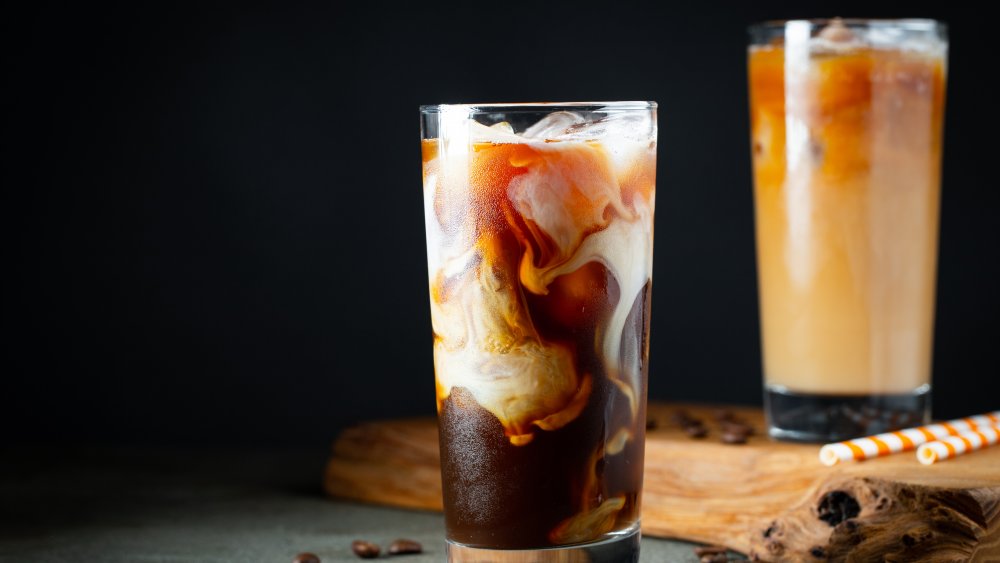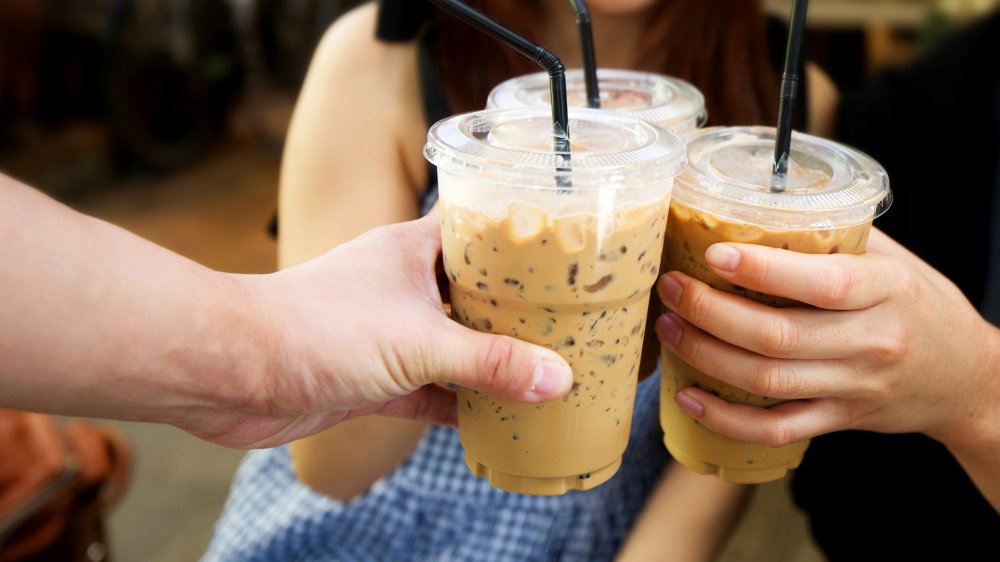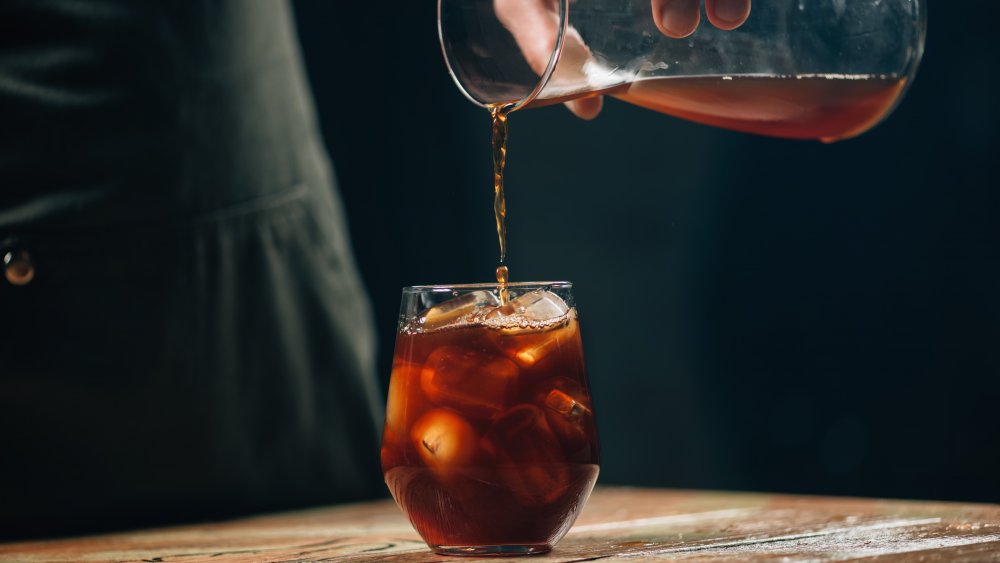What Makes Cold Brew Different From Iced Coffee?
For coffee drinkers, the warm months of summer mean iced coffee season — or depending on who you ask, cold brew coffee season. Both beverages have caffeine and ice, but the price you'll pay is hardly the same. Cold brew coffee is almost always going to be more expensive than iced coffee — generally around 50 cents more (via Philly Mag).
While your latte from Starbucks might look the same whether it's an iced coffee or cold brew, the tastes and jolt you get from it could be very different. It really all comes down to the brewing process. Iced coffee is simply regular old coffee that has been allowed to chill in the refrigerator. Cold brew, on the other hand, is a bit different.
"You're not using heat to make cold brew, so you have to use three times the amount of coffee to extract the same flavor," Jonathan Adams, co-owner of Rival Bros. Coffee, said. "Plus, the low temperature means it takes longer to brew." Cold brew is made by allowing the coffee grounds to soak in room temperature or cold water — often for at least 12 hours (via Chameleon Cold Brew).
Cold brew's low acidity might be exaggerated
Aside from the rather simple differences in which iced coffee and cold brew are made, the real differences are in taste, caffeine content, and to some extent, acidity. Fans of cold brew know that it has a smoother taste and more condensed flavor than iced coffee with less bitterness. Basically, hot water brings out the bitterness of the beans, while cold water does not (via Blackout Coffee).
There's also the argument that cold brew coffee has as much as 70 percent less acidity than regular coffee. Gastroenterologist Rabia A. De Latour didn't dispute that cold brew might be a little less acidic than coffee that's brewed hot, but explained to The New York Times that how much less is probably an exaggeration. "I've seen this statistic a lot, but I don't see any scientific data to support this claim," she said before referring to cold and hot brew samples with pH values between 4.85 and 5.13.
Cold brew has higher caffeine content
Besides taste, the real standout for cold brew over iced coffee is the caffeine punch it packs. For example, a 16-ounce cup Starbucks cold brew will contain around 200 milligrams of caffeine. That's around 20 percent higher than the caffeine you'd find in the same sized iced coffee. Grab a cold brew from Dunkin' Donuts or your local coffee shop and it too will probably have more caffeine than an iced or hot coffee.
Predicting exactly how much caffeine will be in a batch of cold brew can be tricky, and if you're prone to the jitters you may find that some brands are more powerful than others. If you find that your cold brew is too strong, just add a bit more ice or milk to tame that caffeine.


